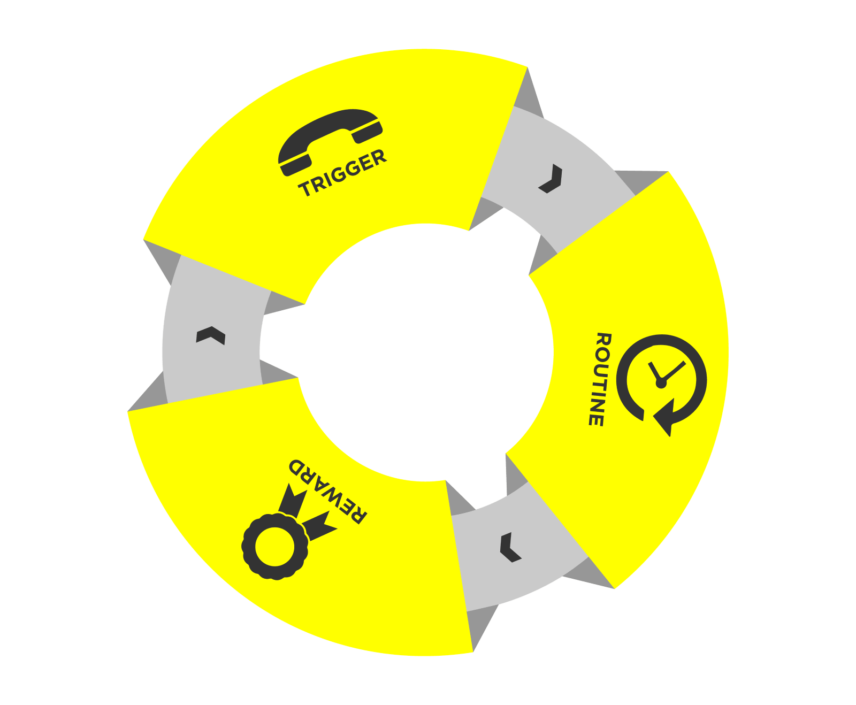Do you ever get caught up in a cycle or loop that lets you get into the same negative results? Most of us do and, we are not even aware of why we end up getting the same results. This is where the powerful function of habit comes to play.
In Charles Duhigg’s book, The Power of Habit, the value of developing keystone traits that become habits cannot be overstressed. A habit emerges because the brain is constantly looking for new ways to expel less energy. In other words, the brain is always looking for a faster, more productive way for us to do things.
Our brains develop habits through a three-step cycle or better known as the ‘Habit Loop’. First, your brain is cued to go on autopilot. Then there is the routine, which can be physical or mental or emotional. Finally, there is a reward, which helps you brain to figure out if this behavioral loop is worth remembering for the future.

Because this is such an automated response, our habits emerge without our permission. It happens as a mechanism to help us adapt better to our environment. Forming positive habit loops can get you doing things more productively. Habits can develop cravings without us even realizing it, and because of this important aspect, you can use the ability of cravings to develop a habit.

So what about bad habits?
Bad habits can be changed if you change something in the loop. Usually, the best thing to change the routine, instead of changing the cue or the reward.
To break your bad habits, identify the cues and rewards, then, you can change the routine. Err on the side of grace: Not everyone has the same success or reaction to changing bad habits or adjusting to new ones. Be patient with yourself and figure out a way to make it all work according to your pace.

Pro-tip: Place Emphasis on Small Wins
Small wins that are celebrated help us leverage our mindset to bigger and more substantial achievements. The loop of achieving one small task is like a domino effect to help us tick off more small wins, which will eventually lead us to bigger wins.

Pro-Tip: Develop Keystone Habits
Keystone Habits are habits we perform that creates a culture with positive effects on your psyche as a person. Examples of keystone habits can be seen with parents learning to choose certain words in front of their children so a culture of temperance and mindfulness among adults is developed.

How can we apply this at work?
Companies can develop Keystone Habits to create better company culture. Keystone Habits such as: learning to celebrate small wins which fosters positive work culture and pushes people to do better. When you create keystone habits, you eventually trigger routines. Routines help with team members wanting to experiment and find better loops to get the job done. These in turn become organizational habits. Most of us call it work culture, but now that we are discussing this, we know that it is more a habit.

Pro-Tip for Leaders: Use Obstacles to Form New Habits
Great leaders use obstacles to as platforms to create new habit loops as solutions. They see obstacles as opportunities to improve organizational habits. This will not happen with people merely being ordered around to change the system. There must be an air of ‘crisis’ or ‘emergency’ that will push the organizational habits to change. Thus, adjusting the habit loop.

At the end of the day: You need to do the work
Habits must stick for it to work, and if you want it to work, you need to cultivate it. It is not enough that we establish a loop. Most of the time, we need belief systems that will push us to further cultivate habits into transformative behaviors that can change our lives.
This June is Pride and Productivity Month at Rocket Station! We are using all our smarts to keep you clever and proud this month of the colorful flag. If you find these articles helpful, sign up in our mailing list and learn new things!
RELATED STORIES



SHARE
POST A COMMENT


